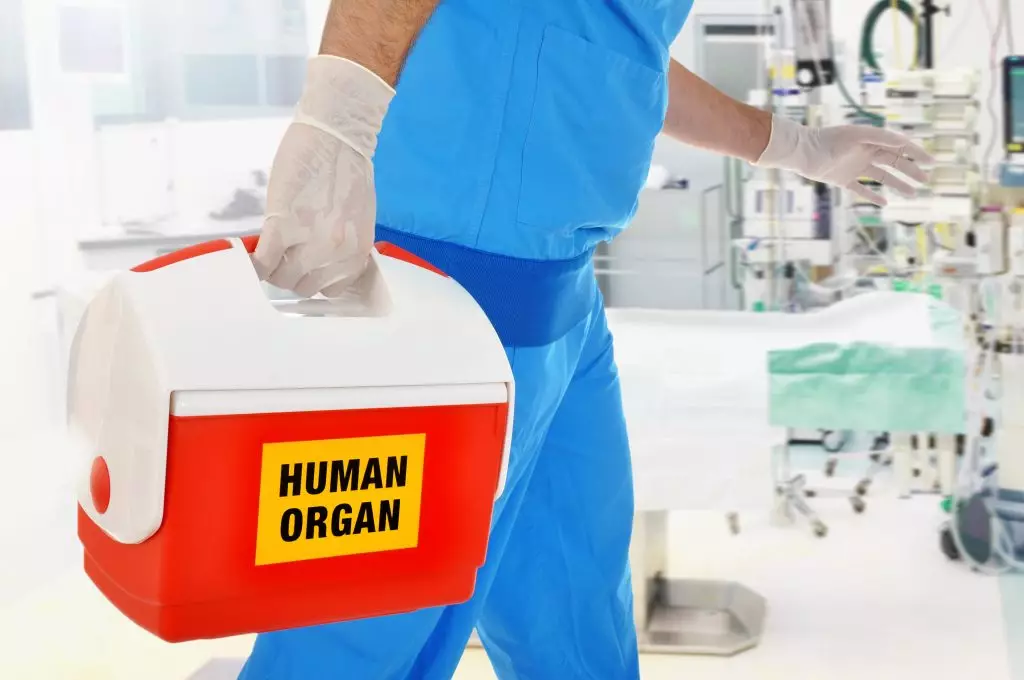
Save Lives Through Organ Donation
Did you know that February 14 is National Donor Day? There are more than 100,000 people on the U.S. national waiting list for kidney donations. Wait time is affected by multiple factors, including blood type match and where you live. Some patients can wait up to eight or nine years to receive a donation.
Becoming a living organ donor can help not only save another human being’s life, but ensure that that person has a better quality of life when they recover.
Whether you are interested in being a kidney transplant recipient or donor, you are likely to have a lot of questions about how you qualify and what the process entails. Here are some answers.
Who is eligible for a kidney transplant?
According to transplant nephrologist Dr. Beje Thomas, eligibility is based on kidney function, which is measured by a test called estimated glomerular filtration rate. To be a candidate for transplant, your eGFR needs to be 20 or less, meaning that you have 20% or less remaining kidney function.
How long is the wait for a kidney transplant?
Wait time varies greatly depending on if you have a living kidney donor at the ready, or are awaiting a deceased donation. If you have a living donor, the wait time can be a matter of weeks. If not, it could take months or years.
The United States kidney transplant list is managed by the United Network for Organ Sharing (UNOS). UNOS aims to ensure that deceased donor kidneys are distributed fairly. Matches are made based on:
- Age (of donor and recipient)
- Blood-type and antibody matching
- Duration of kidney failure
- Location (where you live)
- Medical urgency (how sick you are)
- Similarity in weight and size of donor and recipient
The average wait time at most transplant centers in the U.S. is three to five years, but it can vary in different parts of the country. Other factors that can affect wait time are blood type, prior pregnancies, blood transfusions, and previous transplants.
What does getting a living v. deceased donor transplant mean for the recipient?

There are several benefits to receiving a living donor organ, as opposed to a deceased donor organ.
- Living donors are medically screened to ensure that the donor kidney is healthy and will likely last longer.
- Transplants are performed sooner.
- A kidney from a living donor starts working quickly.
Approximately 30% of recipients of deceased kidney transplants require dialysis immediately after surgery, due to the delay in new kidney function.
What is required to become a living donor?
According to Dr. Thomas, potential donors must:
- Be at least 18 years of age and be of sound mind and body
- Fill out a questionnaire
- Be medically screened by a transplant team
- Not currently smoke
Donor testing and screening are covered by the recipient’s insurance. Some transplant centers offer a stipend and/or a life insurance policy. Speak with the transplant center about what donor benefits are available.
What is the post-op experience like for living donors?
Donors are in surgery for about 2-3 hours and are usually discharged within 24 hours. Rest is recommended for several weeks following the operation. Donors usually follow up with the surgeon 1-2 weeks after the procedure and have access to the entire transplant team if needed, at no additional cost.
In the rare instance that a donor develops chronic kidney disease (CKD) and requires a kidney transplant themselves, they are placed at the top of the waitlist.
Where can I go for more information?
For more in-depth information about the transplant process and how to get involved, check out the following resources.


I’m 69yo Afro Latina, diabetic II; and, reportedly in stage 3/4 kidney failure. I’m made aware a transplant is best compare to dialysis; and, route I find most appealing. I reside in Myrtle Beach, SC and was previously diagnosed with endometriosis resulting in having had surgery at age 23 and eleven transfusions. What impact does the level of transformation on having a transplant?.